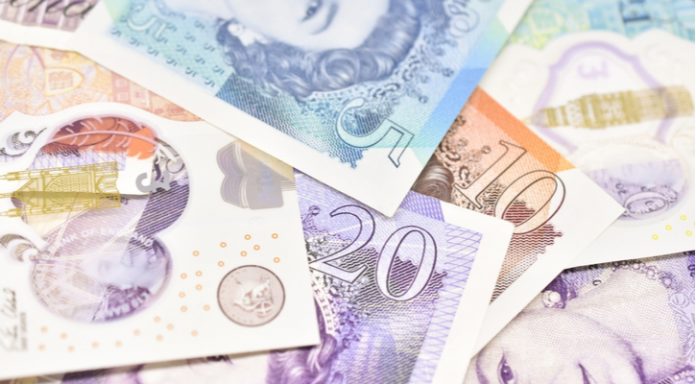Investors hopes of an interest rate rise from the Bank of England (BoE) were pushed even further it’s the distance on Monday, sending the pound lower. Meanwhile, with political turmoil in Europe once again under control the euro moved higher. As a result, the pound euro exchange rate dropped 0.5% to a low of €1.1382.
| What do these figures mean? |
|---|
|
When measuring the value of a pair of currencies, one set equals 1 unit and the other shows the current equivalent. As the market moves, the amount will vary from minute to minute. For example, it could be written: 1 GBP = 1.13990 EUR Here, £1 is equivalent to approximately €1.14. This specifically measures the pound’s worth against the euro. If the euro amount increases in this pairing, it’s positive for the pound. Or, if you were looking at it the other way around: 1 EUR = 0.87271 GBP In this example, €1 is equivalent to approximately £0.87. This measures the euro’s worth versus the British pound. If the sterling number gets larger, it’s good news for the euro. |
The pound had started the previous session on solid ground as data showed that the UK construction sector remained resilient in May. Activity in the sector stayed constant with April at 52.5. Even though this was better than what analysts had been expecting, pound traders were in no mood for celebration. New orders fell, and companies have grown increasingly pessimistic about the outlook for growth in the sector. Whilst usually stronger than forecast data would help lift the pound, it didn’t on this occasion.
| Why does strong economic data boost a country’s currency? |
|---|
| Solid economic indicators point to a strong economy. Strong economies have strong currencies because institutions look to invest in countries where growth prospects are high. These institutions require local currency to invest in the country, thus increasing demand and pushing up the money’s worth. So, when a country or region has good economic news, the value of the currency tends to rise. |
The pound fell sharply in the afternoon as Bank of England monetary policy maker Tenreyro raised doubts over the timing of the next BoE interest rate hike. Tenreyro said that a few rates hikes may be needed over the coming few years, but the timing is an open question. She also noted that inflation had fallen quicker than what the central bank had originally been anticipating. Market participants had been assuming that the BoE would look to raise rates in August, this now looks dubious. With the prospects of a hike being kicked further down the line, the pound fell.
| Why do raised interest rates boost a currency’s value? |
|---|
| Interest rates are key to understanding exchange rate movements. Those who have large sums of money to invest want the highest return on their investments. Higher interest rate environments tend to offer higher yields. So, if the interest rate or at least the interest rate expectation of a country is relatively higher compared to another, then it attracts more foreign capital investment. Large corporations and investors need local currency to invest. More local currency used then boosts the demand of that currency, pushing the value higher. |
Today investors will look towards service sector pmi data for further clues on the health of the UK economy. Brexit negotiations are also due to start again meaning headlines could also drive trading.
Euro Back In Demand As Political Uncertainty Calms
The euro was broadly in demand on Monday as investors reacted positively to the political calm across Europe. The new Italian coalition government was sworn in on Friday and Spanish Socialist leader Pedro Sanchez took the reins in Madrid. Now that the political instability in Italy and Spain is under control investors have been keen to buy back into the common currency.
Today investors will look towards eurozone retail sales. After inflation ticked higher, investors will be interested to see whether retail sales are higher than what analysts predict.
|
This article was initially published on TransferWise.com from the same author. The content at Currency Live is the sole opinion of the authors and in no way reflects the views of TransferWise Inc. |





